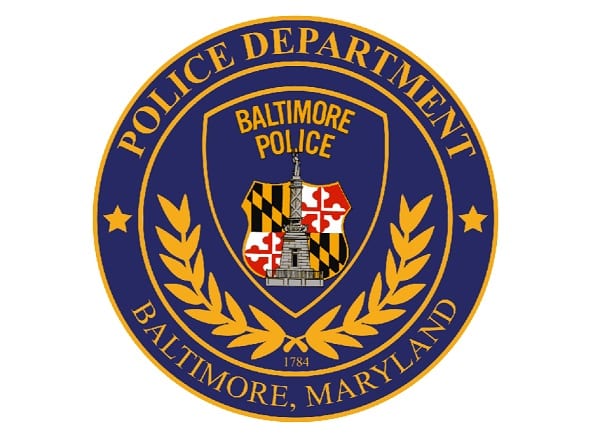UPDATE 2: Rivera has been sentenced to 14 months in prison.
UPDATE: Rivera has pleaded guilty to the charges.
Original story below…
——
NOTTINGHAM, MD—Federal criminal documents were filed on Wednesday charging former Baltimore Police Officer Victor Rivera, 48, of Nottingham, with making false statements to a federal law enforcement officer in connection with a scheme to sell three kilograms of cocaine seized during a Baltimore Police Department investigation.
Former Baltimore Police officer Ivo Louvado, 46, of Harford County, was previously charged in federal court for his role in this matter.
The federal charges were announced by United States Attorney for the District of Maryland Robert K. Hur and Special Agent in Charge Jennifer C. Boone of the Federal Bureau of Investigation, Baltimore Field Office.
Victor Rivera and Ivo Louvado joined the Baltimore Police Department (BPD) on July 11, 1994 and November 21, 1999, respectively. In February 2009, Rivera and Louvado were serving on a squad with W.J., C.J., P.G., and K.G., that was supervised by W.K. (full names withheld by authorities).
According the charging documents, prior to February 19, 2009, W.J. and C.J. told Rivera and Louvado that they had received information from a confidential informant about a large-scale narcotics trafficker operating out of a residence on the 1400-block of Ellamont Street in Baltimore. On February 19, 2009, Rivera, Louvado, and other members of the squad were conducting surveillance at the residence of the alleged narcotics trafficker, an individual whose initials are T.M. Rivera and another member of his squad, W.K., followed a car from that residence to a nearby school where Rivera saw the driver throw something into a trash container.
Once the driver left, Rivera and W.K. recovered the trash and found it to be empty kilogram drug wrappers. During this time other officers claimed to have followed a second individual who left the residence who threw trash from the car window, which was found to contain cocaine residue. Rivera, Louvado, and other officers remained at the house until W.J. and C.J. obtained a search warrant from a Baltimore City District Court judge.
As detailed in criminal documents, Rivera and Louvado ultimately participated in the search of the residence and Louvado took photographs of items that BPD seized, including a jacket hanging behind a door that contained a large amount of cash in it. While no drugs were found in the house, officers found car keys, including a key that had the ability to activate an alarm in a vehicle remotely. A BPD officer activated the alarm and officers heard the alarm sound in a pickup truck that was parked nearby. Louvado and other officers went to the pickup. The back of the pickup truck had an opaque cover over it that could be locked. The cover was opened and in the back of the pickup truck, under construction debris, a significant quantity of cocaine was found. Rivera subsequently learned that drugs were found in the truck.
Louvado and other officers waited with the cocaine until a SWAT team arrived to provide protection during the transportation of the cocaine to BPD headquarters because it was such a large quantity. In order to transport the cocaine from the scene to BPD headquarters, it was loaded into a BPD surveillance van driven by K.G. After the cocaine was loaded into the surveillance van, Louvado followed the SWAT team to BPD headquarters to maintain chain-of-custody over the cocaine. Forty-one kilograms of cocaine were turned in to the BPD’s Evidence Control Unit on February 20, 2009. Later that day, a criminal complaint was filed in the United States District Court for the District of Maryland charging T.M. with possessing with intent to distribute five or more kilograms of cocaine.
According to the charging documents, Rivera, Louvado, and K.G. subsequently discovered three additional kilograms of cocaine in the surveillance van that had been used to transport the cocaine to BPD. These kilograms of cocaine had come from the seizure from T.M.’s pickup truck on February 19 and 20, 2009, but had not been turned in to the BPD on February 20, 2009. Rather than turn this cocaine in to BPD, Rivera, Louvado, and K.G. agreed to sell the cocaine and split the proceeds from its sale.
Rivera allegedly sold the cocaine to a confidential informant of his, who trafficked in cocaine. The source sold the cocaine in Baltimore City. Rivera received the proceeds of the sale from his source and then shared them with Louvado and K.G. Ultimately, Rivera received $20,000 and Louvado received $10,000 in drug proceeds from the sale of the cocaine seized from T.M.’s pickup truck that had not been turned in to BPD.
If convicted, Rivera and Louvado each face a maximum sentence of 10 years in prison for making false statements to a federal law enforcement officer. No court appearance has been scheduled.
Do you value local journalism? Support NottinghamMD.com today.

